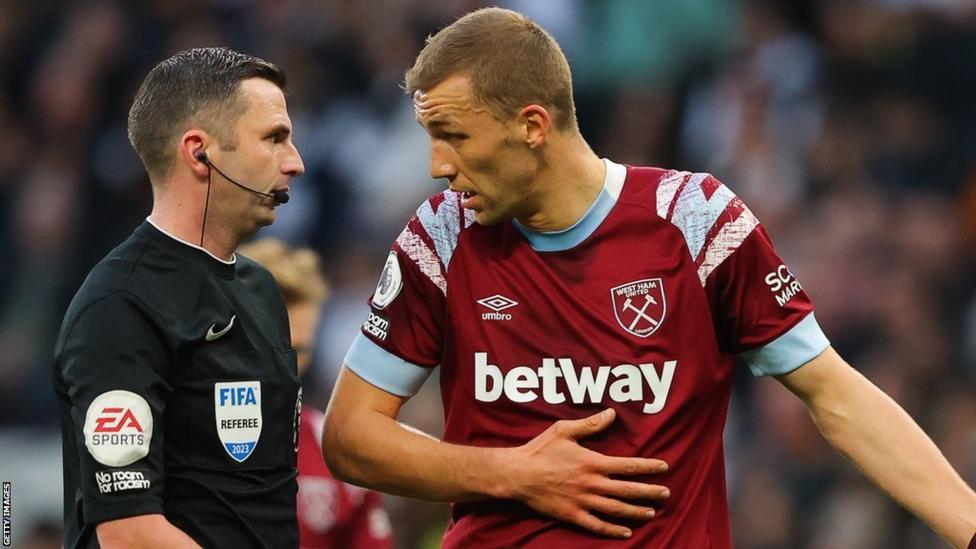Premier League clubs have collectively agreed to withdraw gambling sponsorship from the front of their matchday shirts by the end of the 2025-26 season.
However, after the deadline, clubs will still be able to continue featuring gambling brands in areas such as shirt sleeves and LED advertising.
And clubs will be allowed to secure new shirt-front deals before the deadline.
Eight top-flight clubs have gambling companies on the front of their shirts, worth an estimated £60m per year.
The announcement follows a consultation between the league, its clubs and the Department for Digital, Culture, Media and Sport (DCMS) as part of the government’s ongoing review of current gambling legislation.
The decision will see the Premier League become the first sports league in the UK to take such a measure voluntarily in order to reduce gambling advertising.
The league is also working with other sports on the development of a new code for responsible gambling sponsorship.
The government was not expected to propose banning gambling sponsorship, with the plan being for the Premier League to agree voluntarily to a change.
Reforms to the Gambling Act 2005 were largely agreed by former Prime Minister Boris Johnson before he stepped down last July, leading to a delay in a gambling white paper being published.
On Thursday, Lucy Frazer, who was appointed Secretary of State for Culture, Media and Sport in February, said she “welcomed the decision by the Premier League”.
“The vast majority of adults gamble safely but we have to recognise that footballers are role models who have enormous influence on young people,” she added.
“We want to work with institutions like the Premier League to do the right thing for young fans. We will soon bring forward a gambling white paper to update protections for punters and ensure those who are at risk of gambling harm and addiction are protected.”
What is the background?
A DCMS spokesperson told BBC Sport last May that they are undertaking “the most comprehensive review of gambling laws in 15 years to make sure they are fit for the digital age”.
Campaigners for a wider ban say gambling sponsorship in football has normalised the industry, and that tighter regulation is needed to protect children and other vulnerable groups.
The Betting and Gambling Council, which represents the industry, said the “overwhelming majority” of the 22.5m people in the UK who bet each month, do so “safely and responsibly”.
It added the “rate of problem gambling remains low by international standards at 0.3% of the UK’s adult population – down from 0.4% the year previous”.
However, a YouGov survey for GambleAware in 2021 put the figure at 2.8%.
Former Conservative leader Iain Duncan Smith is part of the All Party Parliamentary Group on gambling-related harm, which has been lobbying the government for tougher protections.
He said: “At the moment, we are probably the country with the most liberal gambling laws in the world.”
In January, Aston Villa’s fan consultation group met chief executive Christian Purslow after the club was reported to have signed a deal with Asia-based betting firm BK8. It later issued a statement saying “the commercial reality is that to teams outside the top six, such sponsors offer clubs twice as much financially as non-gambling companies”.
The Premier League has previously said “a self-regulatory approach would provide a practical and flexible alternative to legislation or outright prohibition”.
The collective agreement to start the ban after 2025-26 has been reached to assist clubs with their transition away from shirt-front gambling sponsorship.
The English Football League (EFL), which is sponsored by Sky Bet, has previously said any outright gambling sponsorship ban for its 72 members would cost clubs £40m a year.
The EFL’s position on the gambling industry is long standing, that it should contribute to the financial sustainability of professional football, considering the significant amount of money it makes from the game.
Chairman Rick Parry has previously expressed the EFL’s belief that an evidence-based approach to preventing harms is of much greater benefit than that of a blanket ban.















































